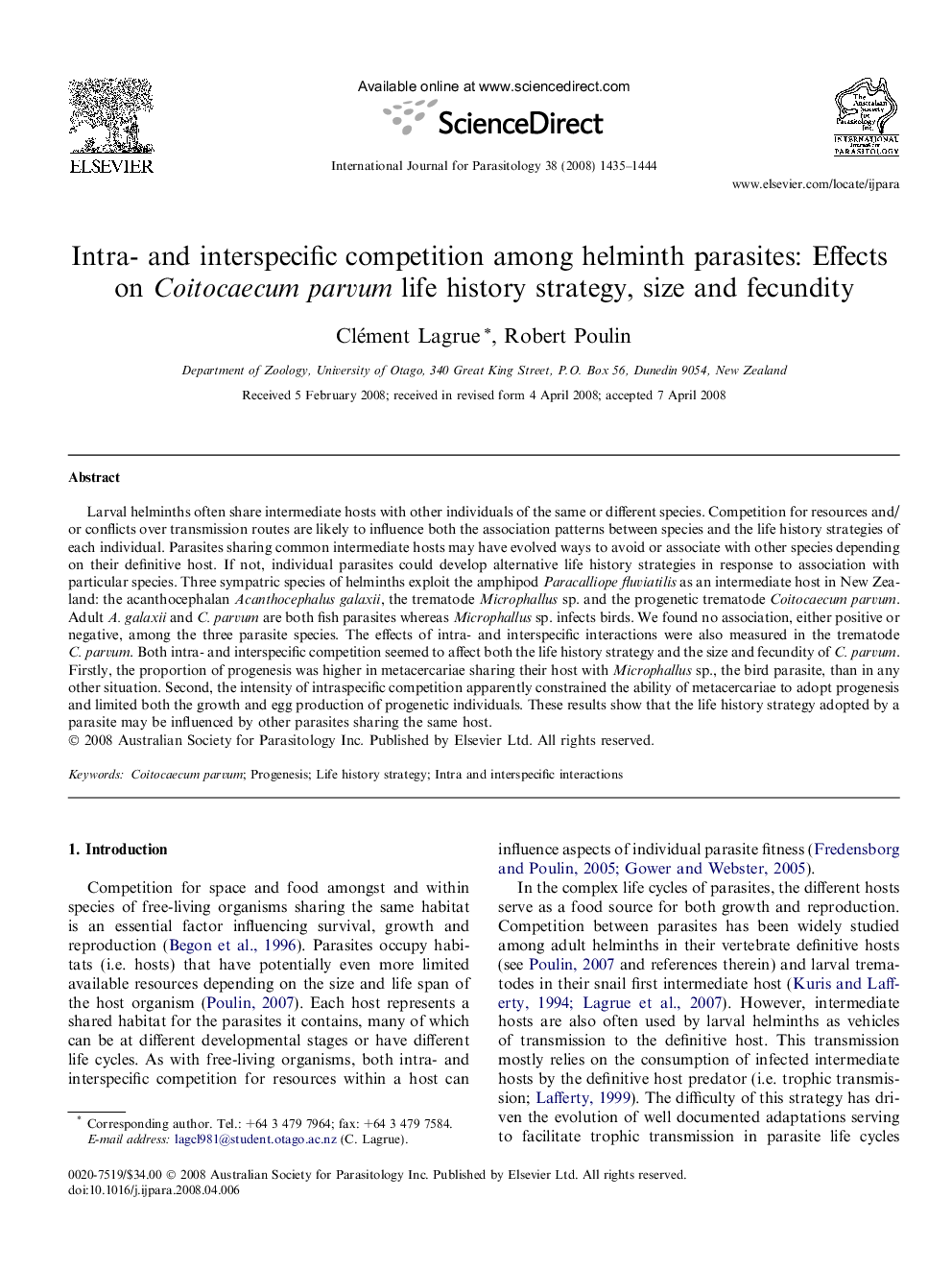| Article ID | Journal | Published Year | Pages | File Type |
|---|---|---|---|---|
| 10972885 | International Journal for Parasitology | 2008 | 10 Pages |
Abstract
Larval helminths often share intermediate hosts with other individuals of the same or different species. Competition for resources and/or conflicts over transmission routes are likely to influence both the association patterns between species and the life history strategies of each individual. Parasites sharing common intermediate hosts may have evolved ways to avoid or associate with other species depending on their definitive host. If not, individual parasites could develop alternative life history strategies in response to association with particular species. Three sympatric species of helminths exploit the amphipod Paracalliope fluviatilis as an intermediate host in New Zealand: the acanthocephalan Acanthocephalus galaxii, the trematode Microphallus sp. and the progenetic trematode Coitocaecum parvum. Adult A. galaxii and C. parvum are both fish parasites whereas Microphallus sp. infects birds. We found no association, either positive or negative, among the three parasite species. The effects of intra- and interspecific interactions were also measured in the trematode C. parvum. Both intra- and interspecific competition seemed to affect both the life history strategy and the size and fecundity of C. parvum. Firstly, the proportion of progenesis was higher in metacercariae sharing their host with Microphallus sp., the bird parasite, than in any other situation. Second, the intensity of intraspecific competition apparently constrained the ability of metacercariae to adopt progenesis and limited both the growth and egg production of progenetic individuals. These results show that the life history strategy adopted by a parasite may be influenced by other parasites sharing the same host.
Keywords
Related Topics
Life Sciences
Immunology and Microbiology
Parasitology
Authors
Clément Lagrue, Robert Poulin,
